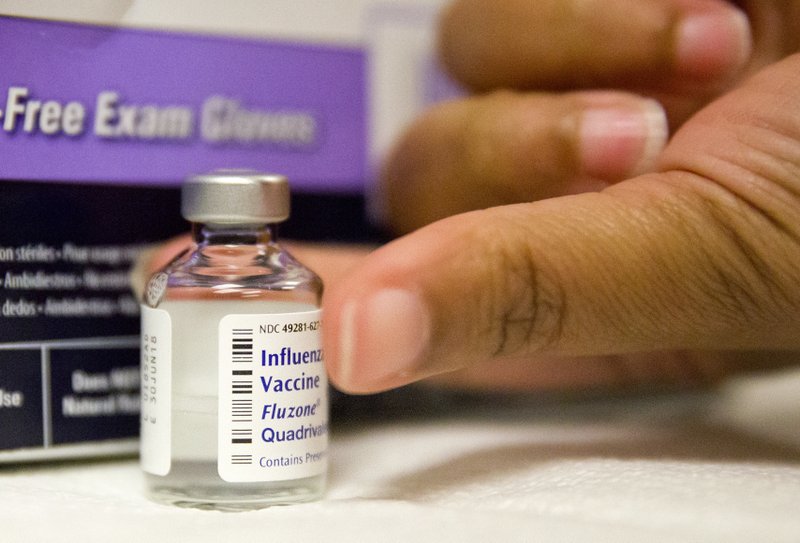The flu-related deaths of three more people, including a child, were reported to the state this week, raising the toll from the current flu season to 125.
The child was the third youngster to have died from the flu this season and the first one who was 4 years old or younger. The others were between ages 5 and 18.
"Every pediatric death is a tragedy," state epidemiologist Dirk Haselow said. "Obviously they raise concerns."
The two other Arkansans whose deaths were reported earlier this week were between 25 and 44 years old, raising the total deaths in that age group to four, according to a state Department of Health report.
Although the number of total flu-linked deaths is already the highest in at least the past 17 years, the number of child deaths remains below the five who died during the 2012-13 season, according to the Health Department report.
Of the other deaths so far this season, 102 were of people age 65 or older and 16 were of people 45-64.
The previously reported death of one Arkansas child was from an influenza A virus known as H1N1, Haselow said. The others were also from influenza A viruses, but the tests did not determine whether they were H1N1 or H3N2, he said.
Nationally, the flu deaths of 53 children had been reported as of late last month, according to the U.S. Centers for Disease Control and Prevention.
Citing privacy concerns, Haselow said he couldn't say whether any of the young Arkansas victims had received a flu vaccination.
Among all the Arkansas flu deaths this season, the Health Department as of last week had been able to find information on the immunization status of about 60 percent of them. About a third of that group had received the vaccine, department spokesman Meg Mirivel said this week.
The shot, available by appointment at county health offices at no charge to the uninsured, is recommended for everyone 6 months or older, Haselow said.
"All you have to do is call ahead and we'll give it to you," Haselow said. "We have plenty in our health units now."
Children under 5 are among those most at risk for complications from the flu, in part because their immune systems aren't as adept at fighting it off, Haselow said.
Young children are also worse at clearing their airways, such as by blowing their noses, and may not do a good job of telling adults about their symptoms, he said.
He said parents should quickly seek medical care for children younger than 5 who develop flu symptoms.
Other people at risk of complications include the elderly, the pregnant, and people with weakened immune systems or chronic health conditions such as heart disease, smokers and people exposed to secondhand smoke, Haselow said.
In addition to getting a flu shot, Haselow said people can protect themselves by washing their hands frequently, coughing into their elbows instead of hands and cleaning frequently touched surfaces that could carry germs.
Arkansas Children's Hospital and the hospital's clinics have already treated 955 patients who tested positive for the flu this year -- more than three times the number of such patients who tested positive during the entire previous flu season, said Michele Honeycutt, the hospital's director of infection control and prevention.
"It definitely challenges our resources a little bit," Honeycutt said of the number of flu patients this year. To keep down waiting times in the emergency room, the hospital has redirected some patients to clinics when appropriate, she said.
"The last thing you want to do is bring your child and sit in the ER for a long period of time," she said.
Of this season's flu patients, 22 have been hospitalized, including 12 who remained in the hospital on Wednesday, she said. Typically about 30 patients are hospitalized with the flu each season, she said.
"I don't know that the acuity level that we see in pediatrics is worse than what we typically see in flu -- we're just seeing more kids," she said.
A Section on 02/08/2018

